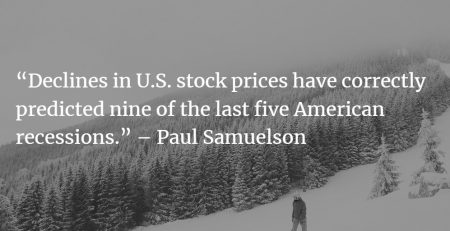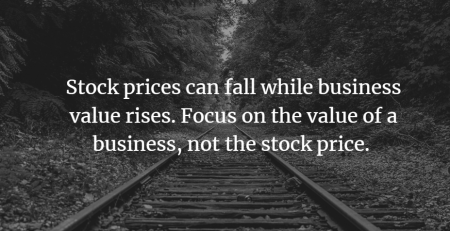Chinese VIE Structure: Recent Developments
We wrote back in November about the risks posed to Western investors by the Chinese VIE (Variable Interest Entity) structure. Following recent announcements by the Chinese regulator, we believe those risks have just increased, so we thought it best to revisit the issue and provide an update.
For those unfamiliar with the VIE structure, please see our previous overview of VIEs here. In short, many investors think that when they buy Chinese stocks listed on US exchanges, they are buying exposure to the real Chinese companies. In reality they are actually buying exposure to a Cayman Island registered shell company that is many steps removed (both legally and economically) from the real company in China.
This week, the China Securities Regulatory Commission (CSRC) has come out and said that it is actively looking to revise the rules on overseas listings (VIEs). These new rules could mean that any new listings must be approved by Chinese regulators, as well as potentially placing restrictions on existing listings. For years, the CSRC has chosen to largely turn a blind eye to the illegality of the VIE structure – the new proposed changes are the first time there has been a specific indication of a crackdown on VIE listings, aside from selective enforcement of individual cases. These new rule changes could have serious ramifications for both potential future Chinese IPOs (Initial Public Offerings), as well as for those companies that already have VIEs listed such as Alibaba, Tencent and JD.com.
To put this problem in perspective, there are currently 240 Chinese VIE companies listed on US exchanges with a total market cap of more than $2trn. Think about that for a moment: investors are ascribing $2trn of value to a bunch of un-enforceable contracts held in shell companies in the Cayman Islands where there is a history of underlying company assets being stolen without warning, compensation, or recourse. It is honestly slightly staggering to us that we have got to this point.
Why has all this happened?
In our view there are three levels of failings.
1. Poor Regulation
The regulators exist to protect investors – in this case they have not done so. Shell companies that hold no assets and no legally enforceable rights should not be allowed to sell shares to unsuspecting US investors. The regulators should not have allowed these listings in the first place, and the accounting rules should not allow these shell companies to present themselves as the real company. On top of that, Chinese VIEs have even been allowed to skip much of the accounting and audit standards required of every other company as a condition of listing. This has resulted in very real losses for investors – just look at Luckin Coffee.
2. IPO Process
The wall street investment banks that sell these IPOs to their clients should know the risks involved. Every Chinese company that wishes to IPO a VIE will file an S-1 which includes a risk section that (very briefly) discusses the risks we have pointed out. We would argue that for such huge investment to go into these IPOs, it has to be the case that these risks are either being downplayed or selectively ignored by either those marketing the IPOs, or those choosing to invest in them. Consider that funds raised by US IPOs of Chinese companies has reached a record level over the past three years – these VIEs have generated hundreds of millions of dollars in fees for US investment banks, so there is clearly an incentive issue.
3. Lack of Disclosure by Asset Managers
We have recently reviewed the prospectuses of some of the largest emerging market and China funds, both passive and active, and in not one case did we find even a mention of the VIE structure, let alone any reference to the risks posed by it. Investors have been marketed and sold billions of dollars of funds that do not reveal their true nature and their real risks. The fact that any fund investing in Chinese VIEs does not declare to their investors that these entities are based on a legally un-enforceable structure, is in our view hugely misleading and should simply not be allowed. Asset managers have a responsibility to know what they own and to explain what they own to their clients, so clients can understand the real risks.
We have great sympathy for any end investor that sees a US listed Chinese company and just assumes investing in it is like investing in any other company. After all, it is fair to assume it must have the stamp of approval from regulators, investment bankers, exchanges, and the large well known asset managers that already hold those shares. In reality, it seems to us that each of these entities have failed to do their job.
Why are the risks increasing, hasn’t this been going on for a long time?
Two recent developments make us believe the risks of investing in Chinese VIEs are increasing.
Firstly, China is showing an increasing willingness to rock the boat. Whilst we take issue with fund managers not disclosing to their clients the risks of their VIE holdings, we do accept that many smart professional investors are aware of the structure and have simply decided that the risks are not as severe as we are making them out to be. (Note – we are also aware of many large professional investment firms who did not even know the VIE structure existed at all until we mentioned it to them…). The argument for not worrying about VIEs goes something like this: “The Chinese government wants to attract foreign capital to its markets; therefore, they are not going to shoot themselves in the foot by enforcing their own laws and hurting US and European investors. They will continue as they have done for years, ignoring the illegality of the structure, and instead maybe one day make the whole thing legal.”
At first glance it sounds logical and reasonable. But we are increasingly seeing that the Chinese regulator is in fact seeking to enforce its laws. There have been a number of recent examples of the regulator pulling the rug on western investors, such as the recent IPO of Didi. Or the cancelling of the Ant Financial IPO at the eleventh hour, followed swiftly by the suspicious disappearance of CEO Jack Ma. Each of these events (and the regularity with which they are occurring) indicates to us that Chinese regulators are potentially becoming comfortable with upsetting foreign investors.
Secondly, US regulators are partly forcing the Chinese regulator’s hand. Recall that Chinese VIEs have not historically been subject to the same audit requirements as other listed firms in the US. Now, whilst we would argue that listing and audit requirements that exist to protect investors should never have been waived in the first place, it is at least positive that US regulators are now attempting to undo that mistake by passing rules that would seek to delist Chinese listed companies that do not submit to audits after a period of three years (which we would say is still too lenient).
This enforcement of rules by the US causes problems for the Chinese government, which brings us to the recent news. The Chinese government have never wanted to provide the level of disclosure the US would need to comply with auditing standards, arguing that they would face a significant loss of data and privacy. Now that it is likely the US regulators will no longer be giving them a pass, the Chinese regulators have decided it is time to review the whole situation of US listings and possibly just walk away. Before this, China was basically getting access to foreign capital without giving much of anything in return, so you can see how their view could change now that this is not the case.
Where do we go from here?
We have no way of knowing what the Chinese (or US) government will do with VIEs. While it looks at the moment like things are tightening up for the structure, it is also possible the Chinese could simply go the other direction and make foreign ownership legal, removing many of the risks we have talked about.
But it is equally possible that the Chinese government could deem complying with audits a bridge too far, forcing current US listed Chinese companies to buy back their shares and relist on domestic exchanges. At what price would those shares be redeemed? Well, possibly whatever price the domestic Chinese company wants to pay. And as things stand today, VIE investors will have virtually no legal right or say in the matter.
The point of all this is that these are very real risks that we believe much of the market has not been accounting for correctly. We as a team are acutely aware of how our industry can mislead and harm investors (this is the main topic of our recent book) – whether that is because the regulators have failed in their duty to protect investors, because investment firms do not understand the risks, or because they are getting paid significant fees to pretend the problems aren’t problems at all.
Caveat Emptor.
Disclosures: This website is for informational purposes only and does not constitute an offer to provide advisory or other services by Globescan in any jurisdiction in which such offer would be unlawful under the securities laws of such jurisdiction. The information contained on this website should not be construed as financial or investment advice on any subject matter and statements contained herein are the opinions of Globescan and are not to be construed as guarantees, warranties or predictions of future events, portfolio allocations, portfolio results, investment returns, or other outcomes. Viewers of this website should not assume that all recommendations will be profitable, or that future investment and/or portfolio performance will be profitable or favorable. Globescan expressly disclaims all liability in respect to actions taken based on any or all of the information on this website.
There are links to third-party websites on the internet contained in this website. We provide these links because we believe these websites contain information that might be useful, interesting and or helpful to your professional activities. Globescan has no affiliation or agreement with any linked website. The fact that we provide links to these websites does not mean that we endorse the owner or operator of the respective website or any products or services offered through these sites. We cannot and do not review or endorse or approve the information in these websites, nor does Globescan warrant that a linked site will be free of computer viruses or other harmful code that can impact your computer or other web-access device. The linked sites are not under the control of Globescan, and we are not responsible for the contents of any linked site or any link contained in a linked site. By using this web site to search for or link to another site, you agree and understand that such use is at your own risk.






